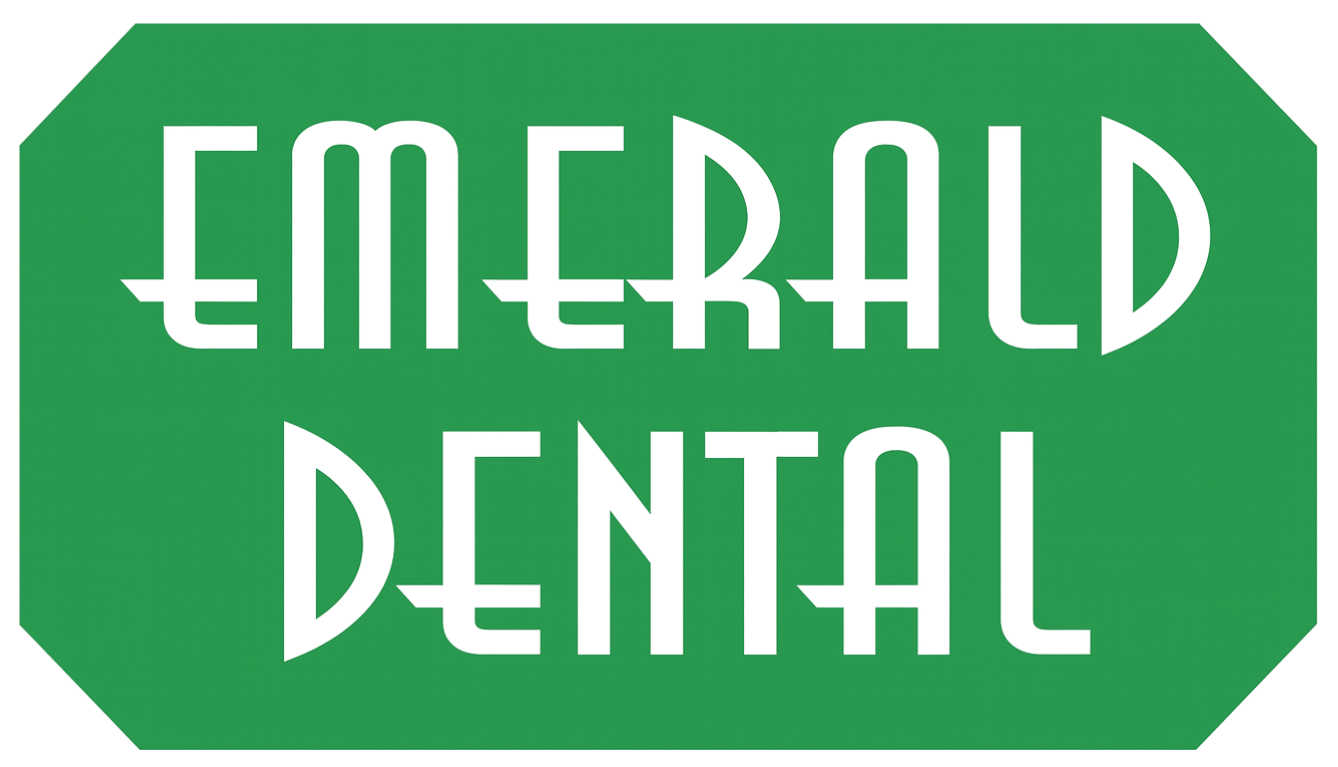One of the best pieces of advice you will ever receive for your health, confidence, and wallet is to never ignore your dental health. There’s simply no replacement for ordinary dental cleanings when it comes to preserving the health and appearance of your smile. Of course, getting off track with routine cleanings happens. Everything from a busy schedule to a fear of dental work can cause us to skip appointments. Are you looking to get back on track with a good schedule for dental cleanings and oral care at a friendly dental office in Lakewood, Colorado? Take a look at a quick guide to how often you should get your teeth cleaned by a hygienist.
What Are the Benefits of Seeing a Dental Hygienist for Routine Cleanings?
The simple answer is that your dental team can catch problems before they get too serious. Catching the early signs of dental decay can help you to avoid the pain and expense of invasive corrective and restorative procedures. A trip to the dentist may even help to save a tooth that’s in danger. Routine dental cleanings and examinations can reveal emerging problems.
Cavities/Tooth Decay
Hygienists can often spot the telltale signs of cavities and worn enamel even before a patient notices a change. A suspected cavity seen during a cleaning can be confirmed by a dentist during your exam. When caught early, cavities can usually be addressed with basic fillings to avoid the need to escalate to crowns, caps, or dental implants.
Gum Disease/Periodontal Disease
Affecting nearly 48% of adults over age 40, gum disease is a serious problem that can eventually escalate to the point where your gums are pulling away from the teeth. This can result in loose teeth that eventually fall out. Seeing a dentist regularly becomes even more important as we age because the risk for periodontal disease increases with age. In fact, more than 70% of adults 65 years and older have periodontal disease. The warnings signs include:
- Swollen gums.
- Bleeding gums.
- Persistent bad breath.
- Painful chewing.
- Sensitive teeth.
- Gums visibly pulling away from teeth.
- Changes in your bite.
- Changes in the fit of dentures.
The big risk with periodontal disease isn’t just that you might lose a tooth. This condition often causes bone loss along the jaw that can compromise all of your teeth while also causing “sagging” in your facial structure. Seeing a dentist frequently won’t just help to stop periodontal disease from progressing. Routine cleanings may actually help to prevent the problem from forming in the first place. That’s because bacteria in the mouth infect tissue surrounding your teeth to create the inflammation that leads to periodontal disease.
Bacteria clinging to teeth can create a film called plaque that develops into tartar that creeps below your gum line. Once the tartar begins spreading below the gum line, all the “brushing at home” in the world cannot reverse the problem because only a professional with the right cleaning tools can get into the spots to remove tartar.
Malfunctioning Dental Hardware/Existing Dental Work
If you’ve had any dental work done in the past, a dental hygienist will know right away if anything inside your mouth is deteriorating. This can potentially save you from a painful, costly malfunction of something like a bridge or crown that is about to fail. Allowing dental hardware to “crack” inside your mouth can create a big problem that requires an even bigger correction than simply scheduling a controlled replacement.
TMJ Disorder
You might have an undiagnosed case of temporomandibular joint dysfunction (TMJ) if you’re living with jaw pain that is making everyday functions like eating, drinking, and talking difficult. Dentists can actually detect TMJ when examining oral structures. What’s more, your dentist can go over some solutions for you to help stop your painful TMJ symptoms. While several therapies are available for TMJ, it’s actually common to have custom prosthodontics and mouth guards made to help you keep your jaw and facial muscles relaxed during sleep.
Sleep Apnea
Yes, your dentist can actually detect an undiagnosed case of sleep apnea. In fact, this is something that dentists are trained to look for during routine examinations. Signs of bruxism (grinding/mashing), acid erosion on teeth, and mouth-breathing patterns all point to sleep apnea. An examination that reveals sleep apnea can be vital for protecting your health because sleep apnea is a serious sleep disorder that causes your breathing to stop for prolonged periods during sleep.
Teeth Grinding
Many people slowly wear down their teeth night after night with unconscious teeth grinding. While teeth grinding is usually owed to stress, some people simply grind their teeth regardless of their stress levels. Unfortunately, that force can wear down your teeth at an alarming rate. Fortunately, dental hygienists and dentists can spot the early signs of grinding on your teeth. Most people are able to stop damage in its tracks by being fitted with a custom mouth guard.
Oral Cancer
Oral cancer screening is built into every dental checkup. Your dentist is actually doing an exam of your jaw, cheek interior, underside of the tongue, mouth, and neck. The exam looks for any sores, bumps, lesions, irregular colorations, or growths that appear potentially problematic. Early diagnosis from a routine dental checkup can save your life!
How Often Should You Visit the Dentist for Cleanings?
The American Dental Association (ADA) recommends visiting the dentist at least once a year for a routine cleaning and examination. However, this is truly the bare minimum. Getting in twice a year (every six months) for a cleaning is ideal for staying on top of any oral health issues before they begin to spiral.
Keep in mind that the once-a-year cleaning recommended by the ADA is intended for people who are generally healthy, don’t have any concerns about their oral health, and don’t have histories of oral health conditions. For example, a person with a history of periodontal disease needs to be more vigilant regarding routine professional cleanings because being lax about getting to the dentist could result in recurrences of infection and disease.
Overcoming Anxiety or Reluctance to See a Dentist
You’re not alone if you’re afraid of going to the dentist. Don’t let stigma steal your smile. According to data published by Harvard Health, fear of the dentist is incredibly common. In fact, a recent survey shows that between 13% and 24% of people around the globe have dental anxiety.
Unfortunately, some people are so afraid of going to the dentist that they avoid visits completely. This can result in high-stress emergency dental visits when tooth pain, infection, or abscesses can no longer be ignored. Waiting until a problem is bad creates a self-fulfilling prophecy because your visit will be more stressful due to the fact that you may need a drastic procedure like a tooth extraction done upon arrival.
There are ways to turn a fear of the dentist into a positive experience. The main thing to remember is that you don’t have to be fully “cured” of a dislike of visiting the dentist. You just have to reduce your fear and anxiety enough to get through the door.
Dentists understand that many patients experience what can range from a slight aversion to a complete phobia when it comes to going to the dentist. Rest assured that dental hygienists, receptionists, and the rest of the staff are all more than equipped to help ease you into the experience. Many dental offices now provide “gentle density” that caters to the needs of people suffering from dental fears to help make each visit more relaxing. Of course, it always helps to have some tips up your sleeve for feeling more confident about coming to the dental office. Next, take a look at some tips for drumming up the courage to begin booking routine dental cleanings again.
- Start Being Diligent About Brushing at Home
You may feel like you can’t go to the dentist because you haven’t been keeping up with brushing and flossing regularly at home. Unfortunately, this line of thinking keeps many people from ever getting on a healthy cycle with home care and in-office cleanings. Begin to boost your “dental confidence” in anticipation of booking a cleaning by being very diligent about brushing and flossing at home. While there isn’t actually any need to “get your mouth in shape” prior to having a professional cleaning, you may simply feel better about going into the experience if you feel like you can prepare your mouth.
The simple formula is just twice-daily brushing, once-daily flossing, and regular mouthwash usage to kill bacteria. The perk of “priming” your mouth is that teeth and gums that are used to regular brushing will be less likely to experience tenderness, swelling, and bleeding during your cleaning. That can simply make the experience more comfortable for you.
- Write Down What’s Worrying You
Many people are fearful of the dentist because they fear judgment. In many cases, a negative experience with an inconsiderate dentist can cause a person to avoid dental care for years. Your head may be spinning with worry. Many dentists specializing in gentle dentistry are very open to hearing about the barriers that are preventing you from feeling comfortable. Take time to write a list of worries that your dentist can use to help meet your needs.
- Choose a Dentist With a Background in Gentle, Compassionate Dentistry
Yes, some dentists can be insensitive. However, it’s important to know that there are also many compassionate dental offices focused on helping patients to conquer phobias and fears to reclaim the proper dental care they deserve. In addition to offering a compassionate attitude, dental offices specializing in compassionate dental care often have special equipment and tools designed to make your visit less intimidating.
- Bring Along Comfort Items
Another perk of choosing a compassionate dentist is that you can bet they’ll be more than happy to accommodate any requests for bringing along comfort items as long as this can be done safely. In many cases, patients like to bring along earbuds that make it possible to listen to soothing music, books on tape, or podcasts as a way to stay distracted during a cleaning and exam. This can make an appointment fly by!
- Bring Along a Companion
Bringing along a person in your life who you trust can also be helpful for feeling at ease in the dental chair. Discuss the possibility of having an “advocate” stay by your side during your appointment. One of the benefits of having someone with you is that your companion can pay attention to any important information that is shared when you’re not in a position to “absorb” information due to anxiety, distractions, or sedation.
Is It Time to Book a Routine Dental Cleaning in Lakewood, Colorado?
Don’t fall behind with routine cleanings! At Emerald Dental, we’re excited to see our patients regularly because we know that every routine cleaning helps to keep them on the track to better oral health for life! In addition to offering routine cleanings and exams, we’re also able to offer our patients all forms of restorative and cosmetic dentistry to keep their smiles beautiful and healthy. Our ability to offer solutions for anything that might be happening with your teeth and gums can be very convenient if you don’t want to deal with the hassle of being referred to another office.
A graduate of the University of Colorado, Dr. Stephanie Paswaters has been practicing dentistry in the Lakewood area since 1995. As the owner of Emerald Dental, Dr. Paswaters has helped to bring gentle dentistry to thousands of patients over the years. Our office offers options for sedation dentistry and nitrous oxide for patients struggling with dental phobias. We offer teeth whitening, veneers, fillings, crowns, root canals, extractions, full dentures, partial dentures, implants, and much more. Please contact Emerald Dental today if you’re looking for a new dentist in Lakewood, Colorado.

